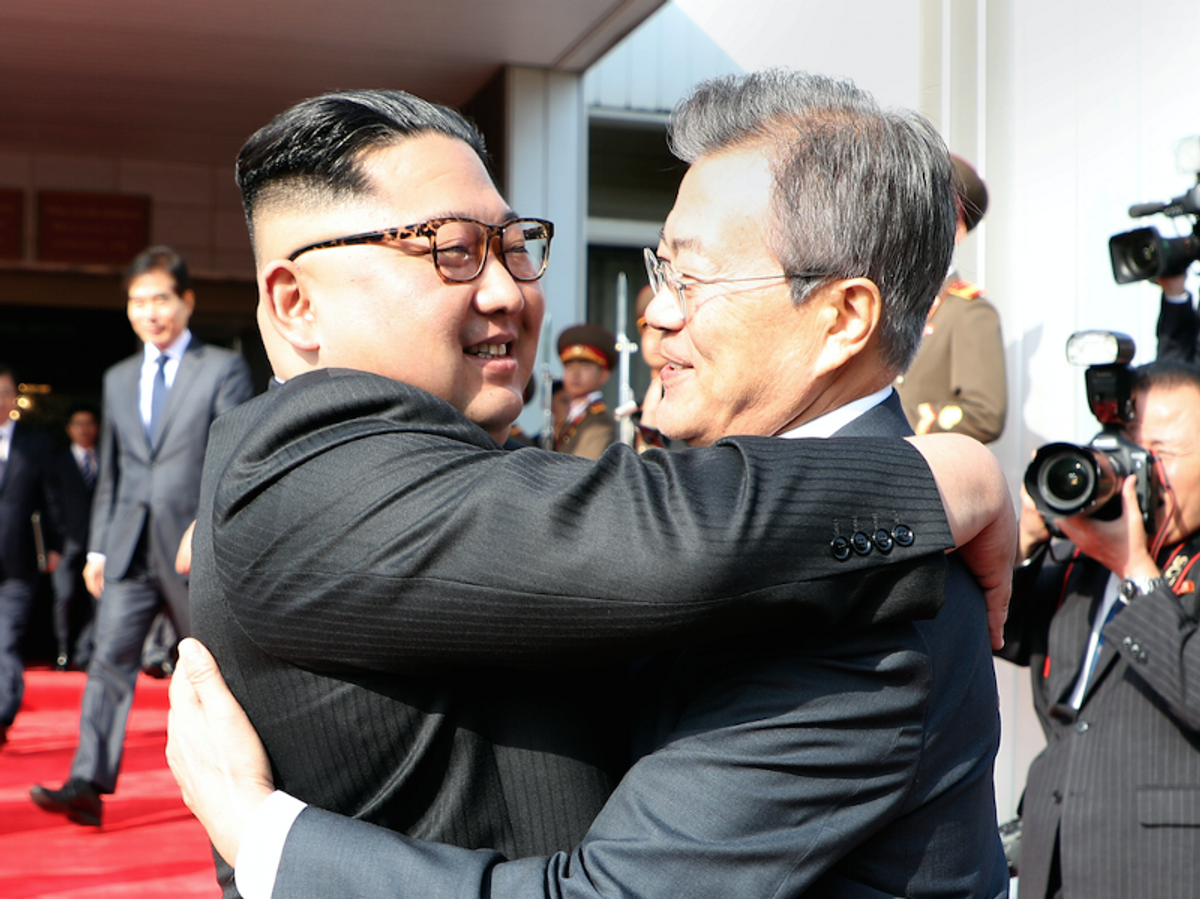The momentarily canceled Trump-Kim summit was, perhaps, un-canceled over the weekend, after a surprise meeting between the leaders of the two Koreas in which they held each other — tenderly even. President Trump declared that preparations for the summit are in motion, and specialists on both sides are evidently on it.
We aren’t going to whiplash around every twist and turn on the road to Singapore, but one thing that my fellow Signalista Gabe thinks shouldn’t go unnoticed is this: whether the summit happens or not, the peculiar geopolitical-astrological alignment of Trump’s presidency and Kim’s audacity has already reshaped the geopolitics of Northeast Asia in three important ways.
Closer Koreas: In just over a month, the leaders of the two Koreas have met as many times as all of their predecessors since the Korean War combined. Public opinion in South Korea has warmed considerably towards the North. South Korean President Moon Jae-in has seized on Trump’s unconventional style to pursue precisely the conciliatory path with Pyongyang that he’s always favored. The longer he can keep Trump at the table (or at least circling around it), the more time Moon he has forge a closer, and less conflict-prone, relationship with the North.
China resets: Barely a year ago, North Korea and China were openly venting at each other. But Kim has travelled to Beijing twice now, all smiles. As Trump aims for a Nobel prize, China spies an opportunity to dictate any Korean settlement on terms favorable to Beijing’s economic and strategic interests. For their part, China and South Korea are also more aligned than ever on how to approach the North. Last week, they agreed to offer a package of economic assistance for Pyongyang in exchange for a slow, phased denuclearization.
Japan warms to China: Trump’s decision to largely leave Japan out in the cold on North Korea diplomacy has pushed Tokyo to open new channels with Beijing, traditionally its main regional foe. Xi and Abe have spoken by phone for the first time ever, and Japan has expressed support for key Chinese economic initiatives, in part to secure a seat at the table in any eventual talks. That represents a potentially major diplomatic thaw, but also a palpable reorientation for the United States’ closest regional ally. (For more on US allies whom Trump has pushed warily towards China, see here.)
Why it all matters: Whether or not the Trump-Kim summit happens, big and decisive changes have already occurred in the region. What do they all have in common? You tell us what pattern you see here…


















